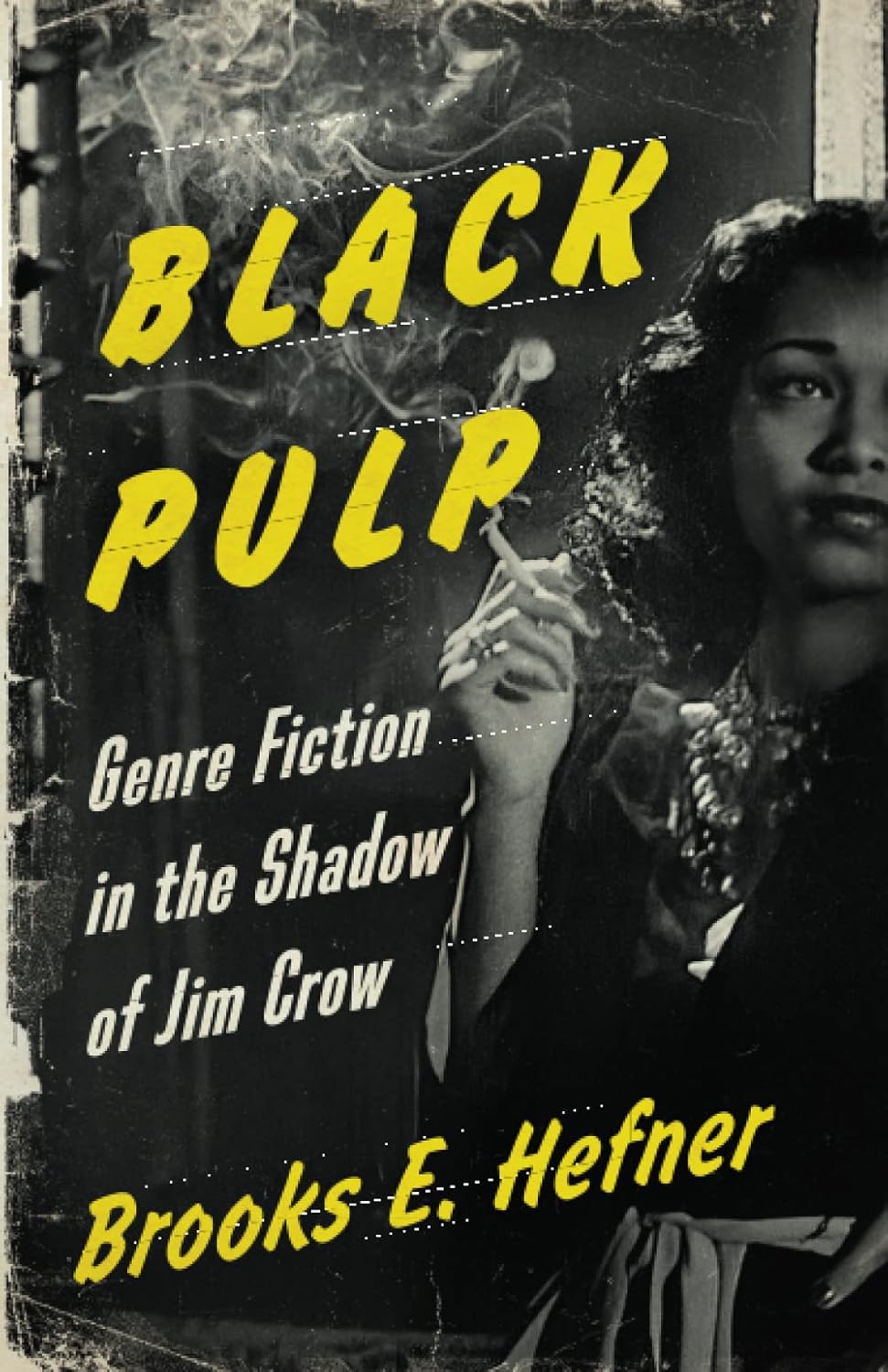
Description:
About this item:
Editorial Reviews
Review
"Brooks Hefner’s compelling and insightful book asks us to reconsider not only what counts as Black imaginative writing but what it means to read Black literature at all. Attending to a vast yet overlooked archive of serial genre fiction, Hefner highlights the pleasures afforded by African Americans’ engagement with popular formulas in the Black press. The result is an eye-opening account of modern literary production that centers the tastes and experiences of Black readers themselves. Beyond the predominance of the protest novel in the white imagination, Hefner reveals the narrative forms and medial formats out of which Black America’s imagined communities were built."—Kinohi Nishikawa, author of Street Players: Black Pulp Fiction and the Making of a Literary Underground
"Black Pulp tells a much needed and long overdue literary history of the short fiction and serial narratives featured in the African American periodical press of the mid-twentieth century. As Brooks E. Hefner’s deft and compelling close readings and contextual accounts of the pulp fiction industry’s developments demonstrate, Black popular fiction’s fresh formulas offered Black readers utopian (not nihilist) visions of the justice they deserved—but were denied—in Jim Crow America. Thoroughly researched, shrewdly argued, wonderfully illustrated, and bracingly written, Black Pulp is as thrilling to read as the literature it surveys. This is a work that anyone interested in mid-century African American and American popular literature, genre criticism, and US periodical history must read."—Jacqueline Goldsby, Yale University
"Beyond the invaluable historical work it performs, Black Pulp offers numerous and exciting theoretical suggestions regarding the politics of reading, the innovations of popular fiction and the huge gulf between the historical experience of readers in a given period and the retrospective constructions of literary history. It constitutes essential reading for whoever is interested in Black studies, pulp fiction or the sociology of reading, probing the limits of these intersecting fields and helping to recover the forgotten hinterlands that lie beyond them."—Journal of Social History
"Hefner stitches together the seams of genre and race... Black Pulp challenges us to reimagine and expand our conceptualization of African American literary culture by adopting Black bibliographic practice that simultaneously recovers relationships between lost texts and a larger network of literary practice, even as it might redefine what we mean as Black bibliography."—Papers of the Bibliographical Society of America
"A fascinating glimpse into a part of Black history that isn’t well known."—Real Change News
"Black Pulp is important and valuable because of the stories Hefner chronicles and the convincing argument he makes that they are worthy of careful investigation, and that in transforming white pulp to create new imaginative worlds, they fulfill an important role by offering new possibilities for readers who have often been deprived of them even in the realm of imagination."—Los Angeles Review of Books
"Hefner’s study is—from beginning to end—an absolute pleasure to read, just as it is a convincing case for the political importance of Black pleasure in reading."—Modernism/modernity
"Hefner reveals the dauntless envisioning of emancipatory futures by Black writers and illustrators. "—Colors of Influence
"For Hefner, recovering African American newspaper fiction is significant because it provides archival evidence of fertile genre experimentation among Black writers in the pulp era... a major achievement. Black Pulp should make it impossible for scholars of popular genre fiction to suggest that Black creators entered the field late or that antiracist approaches to genre are a new development. "—American Periodicals
"Breathtakingly researched and astutely argued, Hefner shines a light on a hidden corner of Black cultural production that has remained mostly out of sight." —Modern Fiction Studies
About the Author
Brooks E. Hefner is professor of English at James Madison University. He is author of The Word on the Streets: The American Language of Vernacular Modernism and codirector of the NEH-funded digital humanities project Circulating American Magazines.
NaN out of 5
NaN% of customers are satisfied
Visit the University of Minnesota Press Store
Black Pulp: Genre Fiction in the Shadow of Jim Crow
BHD1547
Quantity:
Order today to get by
Free delivery on orders over BHD 20
Product origin: United States
Electrical items shipped from the US are by default considered to be 120v, unless stated otherwise in the product description. Contact Bolo support for voltage information of specific products. A step-up transformer is required to convert from 120v to 240v. All heating electrical items of 120v will be automatically cancelled.
Share with
Or share with link
https://www.bolo.bh/products/U1517911575